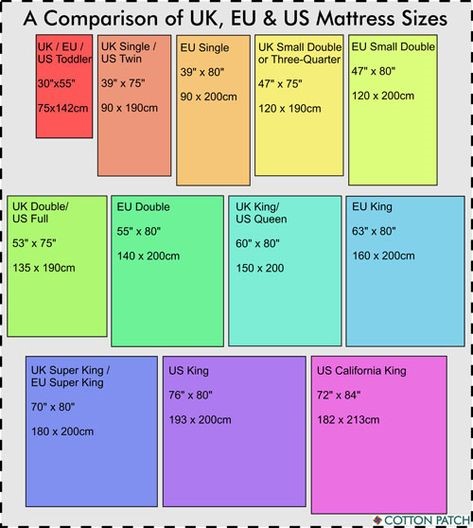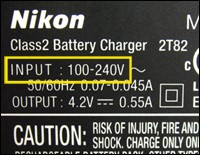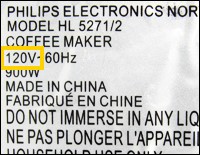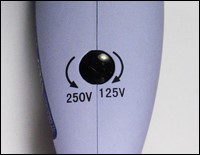Information about Living in Europe
-
French Programs
MFS(E) has programs specifically designed for our Francophone community. It is equally important for us to offer support to our Francophone and Anglophone families. We offer a variety of activities in French, such as Virtual Pause-café (coffee mornings), social sessions en français, one-on-one support to francophone families as needed, and a variety of other activities. Feel free to connect with us if you have ideas and want to contribute to the French programs in Europe.
For more information about French programs visit https://cfmws.ca/europe/resources/french-programs and also visit https://cfmws.ca/europe/events-and-activities for upcoming activities in French. -
MFS(E) Services
MFS(E) supports your transition from one community to another. Some MFS(E) programs include, but are not limited to:
- Children’s craft mailings
- Emergency and Respite Child Care support
- Family Separation & Reunion Support
- Friends on a Journey
- Host Language training
- In person and online location-specific activities
- Online Home Alone course
- Social Worker support
- Virtual workshops via Zoom, including virtual travel forums and health and wellness subjects
- Youth Employment Preparation (YEP) Program
-
Helpful Resources
Please be sure to connect with us online often for the latest programs and services being offered:
Our website
Your source for programs and services available to support you during your OUTCAN posting.
https://cfmws.ca/europe
CFMWS(E) Facebook page
Sharing relevant program and event information during your posting
https://www.facebook.com/CFMWSEuropeSBMFC
OUTCAN Blog
Find information and resources to enhance your OUTCAN posting.
https://www.outcanhorscan.com
CFMWS(E) Youtube Channel
Find information about your posting to Europe and virtual program recordings.
https://www.youtube.com/@CFMWSEuropeSBMFC
The OUTCAN Experience Podcast
Spotify: https://open.spotify.com/show/0GSXlLqrQcWXvcUDnYAjRD
Apple: https://podcasts.apple.com/us/podcast/the-outcan-experience/id1497117472
My Voice / Ma Voix
MyVoice is a Facebook group where you can communicate with Military Family Services (MFS). The group is a safe place to discuss your experiences as a military family and offer feedback about your military lifestyle. You can find out more at: www.facebook.com/groups/MyVoiceMaVoix/
Family Information Line
The Family Information (FIL) is a confidential, personal, bilingual, and free service offering information, support, referrals, reassurance, and crisis management for the military community. We serve Canadian Armed Forces members, Veterans, and their families - immediate and extended. You can find out more at: https://cfmws.ca/support-services/family-information-line
-
Child & Youth Programs
MFS(E) has a range of programs specifically for kids posted to Europe. Here is a snapshot of these programs with a guide for when to watch for registration. Find more information about these programs at https://cfmws.ca/support-services/families/children-youth
- Little Cooks Club (ages 4-7; Fall intake)
- Kids Can Cook (ages 8-12; Fall Intake)
- Teen Can Cook (ages 13-18; Fall Intake)
- Pen Pal Program (ages 5-18; ongoing registration)
- Quarterly Craft Program (ages 3-9; Ongoing registration)
- Friends on a Journey (ongoing)
- Youth Leadership Conference (ages 13-18; registration Fall, YLC usually in Feb)
- Youth Employment Preparation Program (Fall intake; see the employment section for more details)
- Home Alone Program (10+; periodically through centres)
- Babysitting Course (at least 12+ by the end of the calendar year; periodically through centres)
-
Virtual Programs
CFMWS delivers free virtual information and social programs on a regular basis. Visit our website for our activities and event at https://cfmws.ca/europe/events-and-activities.
Click on view more under Upcoming Activities and you can filter to see just virtual programs and/or programs in your area. -
European Advisory Committee
The MFS(E) Advisory Committee (AC) is a group of volunteers representing Canadian Armed Forces (CAF) families and communities across Europe. The AC works to enhance MFS(E)’s capacity to implement family programs and services to all Canadian military families regardless of where they are in Europe.
As a group of volunteers, the AC is not authorized to act as decision-makers or policymakers. Their primary role is to advise the Senior Manager MFS(E) about community needs and evaluate program effectiveness.
CAF members (in a non-official capacity) and their civilian spouses/partners and dependents (18 years or older) are eligible to volunteer for the AC. Fifty-one (51) per cent of the voting membership must be civilian family members of CAF members. Members representing a particular region must reside in that region at the time of recruitment and must have the support of their local CAF Commander.
The MFS(E) AC meets on-site at the Canadian Forces Support Unit (Europe) in Geilenkirchen once a year, usually in the winter. All other meetings, usually held every second month, are conducted online. No special computer equipment or program is required, but reliable Internet is. If you have any questions or would like to discuss this opportunity further, please see the website - https://cfmws.ca/europe/military-family-services-(europe)/european-advisory-committee -
Before you come to Europe
Things to Consider/Bring:
- Immunization Records for school registration – don’t pack in the sea shipment!
- Long-form birth certificates and your marriage certificate for DoDEA school admission to prove dependents are “yours”. A Canadian posting message may not be enough. Also, don’t pack in the sea shipment!
- If your children plan to participate in sports on a US Garrison or in a DoDEA school, they will require a sports physical. It can be hard to get this done in Europe so, if possible, have their Canadian doctor complete the form before leaving. There is a cost, but it may be claimable through your insurance provider. Get the sports physical form from the school on your HHT.
- If your teens participate in the Youth Employment Preparation (YEP) Program, they will require a Social Insurance Number (SIN). Get this before leaving Canada.
- If you plan on working in a field that requires a Police Check, get one done before leaving Canada.
- If you can, get extra poppies for Remembrance Day. It is not recognized everywhere in Europe in the same way as in Canada, but for families, this small thing can be important.
You and your family are all ambassadors for Canada while you are here. You will likely get invited to a neighbour’s home or participate in hosting an international night or Canadian social for your community. Your children may have an international day at their school where they will showcase Canada. Stock up on Canadian goodies. They will be a big hit. Ideas include Canada Day dollar store items, decorations, maple syrup, Indigenous crafts, Canadian books, flags, maple leaves, Canadian clothing, stuffed animals of beavers, etc. You can get creative!
You can also reach out to your local MP or MLA for Canada Flag pins or Canadian Heritage for Canada flag stickers or tattoos. Find out what is available at https://sc-gc.pch.gc.ca/PROMO/NeedHelp.aspx.
Some people miss their Kraft Peanut Butter, Tim Horton’s coffee, Kraft Dinner, Coffee Crisps, real maple syrup or ketchup chips and prefer to bring a bit of a stockpile of comfort food as these items are not easily available in Europe or you will pay a high premium to be able to get them. Some common cooking ingredients can also be hard to track down, so you can either bring graham wafer crumbs or improvise by crushing up local biscuits. The choice is yours, and it is part of the experience. Just as you can’t get some of that comfort food you have been used to, you will experience all kinds of new and tasty treats while in Europe. If comfort foods are important to your family, take some time on your HHT to check out some local grocery stores and see what is available in your city. -
Public Safety and Security
Here is the link to the Government of Canada’s Emergency Assistance info, outside of Canada: https://travel.gc.ca/assistance/emergency-assistance
If at any time you experience an emergency during your posting, you will find Emergency Contacts on our website at https://cfmws.ca/europe/your-posting-to-europe/emergency-contacts





 Most electronic devices have a prominent label that looks like this picture. On this device (a camera battery charger), you can see that after "Input," it says "110 - 240V", which means it is safe to use with any voltage within that range, including the 110V standard in Canada or the 220-230V standard in much of Europe. All you'll need is a plug adaptor.
Most electronic devices have a prominent label that looks like this picture. On this device (a camera battery charger), you can see that after "Input," it says "110 - 240V", which means it is safe to use with any voltage within that range, including the 110V standard in Canada or the 220-230V standard in much of Europe. All you'll need is a plug adaptor.

